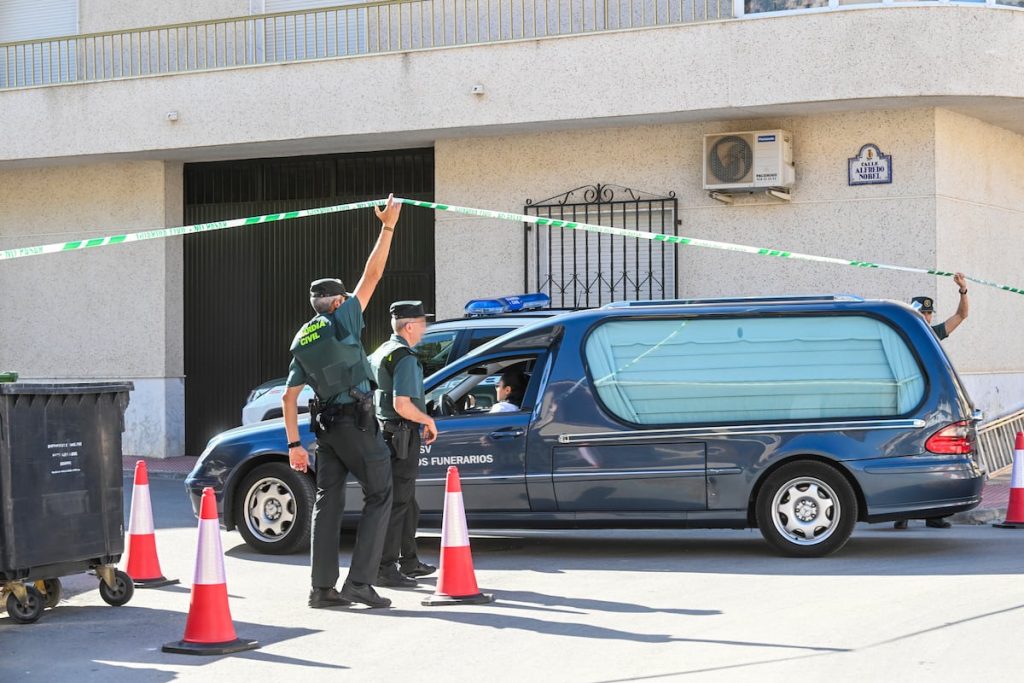The tragic events involving José Gálvez Sanjuan, a 72-year-old man who shot one of his grandchildren in the back or side and suffocated another, have shocked the small town of Huétor-Tájar in Granada, Spain. These incidents occurred between Sunday night and Monday morning in Gálvez’s home, where he had been barricaded for 11 hours before taking his own life with a shotgun after the entry of the Civil Guard. The community is struggling to understand what led the grandfather to take the lives of his grandchildren, but a significant recent event in his life sheds light on his state of mind. Two months prior, his wife and daughter, the grandmother and mother of the children, died in a car accident while he was driving. Both children were injured, leaving José emotionally shattered.
Questions arise about why José’s driver’s license was revoked following the accident, but his gun license was not. Despite regularly renewing his gun license and having his weapons inspected, as required by law, the regulations stipulate that those with mental or physical conditions that hinder the safe use of firearms should not possess them. In the aftermath of the accident, José’s friends and relatives observed his deteriorating mental state, with some expressing concerns that he may have taken his own life if tasked with renewing his gun license. However, the unfathomable act of harming his grandchildren caught everyone by surprise and remains a haunting question among the town residents.
The Montero Gálvez family’s peaceful life was shattered on March 19th. Antonio, the children’s father, worked as a clerk at a local high school, while María José, the children’s mother and José’s daughter, worked at the Andalusian Employment Service office in a nearby town. The couple had two sons, Guillermo and Pablo, ages 12 and 10. On the day of the tragic accident, José offered to take the children to their grandmother’s with him, as Antonio had to care for his hospitalized mother in Granada. However, José lost consciousness while driving, resulting in a fatal collision that claimed the lives of the grandmother and the children’s mother, leaving the children injured and traumatized.
The aftermath of the accident left José emotionally scarred, as he survived with minor physical injuries but deep psychological wounds. Antonio was deeply affected as well, struggling to cope with the loss of his wife and facing the prospect of a new life without her. This situation prompted Antonio to make plans to move out of the family home, where they lived on the first floor of a two-story building with José residing on the second floor. The impending change reportedly triggered José to take drastic actions, leading to the tragic events that unfolded in the family home, resulting in the loss of innocent lives and leaving lingering questions in the hearts of the townspeople.
The response from law enforcement was swift, with the Civil Guard initiating negotiations with José after being met with gunfire upon their arrival. Antonio, the father, remained outside the home throughout the night, supporting the agents and monitoring the situation closely. Additional agents were dispatched from Madrid to assist in the negotiations, culminating in the forced entry into the home, where the devastating scene unfolded. While conflicting accounts suggest that a shot was heard after Antonio’s arrival, indicating early casualties, the autopsy results will provide clarity on the timeline of events. Antonio, now hospitalized, continues to grapple with the aftermath of the tragic loss of his children and the complex circumstances that led to the unthinkable tragedy in Huétor-Tájar.














